Midwife Booth, a Salford midwife, attended over 4,225 cases (1864-1879). Ellen Booth practised in the environs of Salford during the nineteenth century. Data provided in this register suggests that she attended over 4,225 births between 1864 and July 1879. From the figures listed in the front of the book, her birth attendances were lowest in the first few years of practice, which happened to coincide with the latter years of the Lancashire Cotton Famine (1861-65). The surviving casebook lists births from 1873 until July 1879, and shows a year-on-year increase in midwifery activity.
The format of the individual birth records evolved slightly over time, but contained details of the mother’s name and address, the day and month of the year, and the sex of the child (or children), and it was noted if it was the mother’s first baby. The numbers of births for each completed year were totalled, and interestingly, at the back of the book, she also kept notes of some of the fees charged and any amounts that remained outstanding. Although there is a slight inconsistency in the style of the records towards the end, births were predominantly described as ‘natural’, and there are relatively few cases in which medical attendance was summoned.
The medical cases begin to appear towards the end of the register; in one case a Dr Winterbottom was called to perform an ‘instrumental’ birth, two more cases are described as ‘natural instrumental’, and in 1879 there was an instrumental birth of a stillborn infant boy. A significant number of infants were born ‘face to pubis’ and Mrs Booth encountered several breech births (one footling), plus face presentations and sets of twins, which were all born without apparent difficulty . Complications noted included several retained placentae, an ‘emerage’ (haemorrhage) before birth, which resulted in a natural birth, and one ‘emerage’ after birth, with no mention of her calling for medical assistance. There were also references made to miscarriages as well as stillbirths.
Several babies were described as malformed, and prematurity was noted; one premature baby was recorded as living for 20 hours (incidentally, none of the babies appear to have been weighed at this time). Towards the end of the register, a maternal death is documented which occurred at the onset of labour, apparently due to ‘rupture of the heart’.
These archives are from the Craig Brisbane Collection, and were brought to the attention of De Partu via Manchester Museum. Group member Dr Frances Badger has already completed a study of a similar birth register which contains details of over 5000 births between 1847 and 1875, kept by a midwife called Mary Eaves of Spon End, Coventry. The archives have now been transferred to her for a closer examination and investigation.
Dr Frances Badger -thesis abstract
Frances’s article on Mary Eaves may be of interest:
Badger, Frances J. Illuminating nineteenth-century English urban midwifery: the register of a Coventry midwife. Women’s History Review 23(2014) 683-705

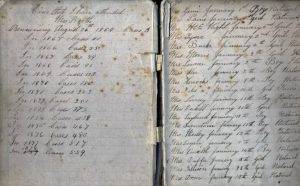
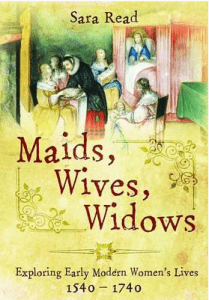
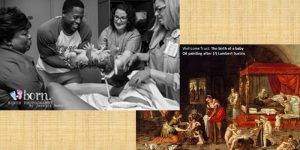

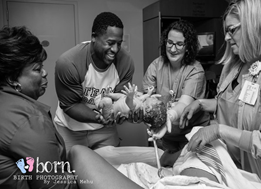 De Partu history of childbirth event
De Partu history of childbirth event
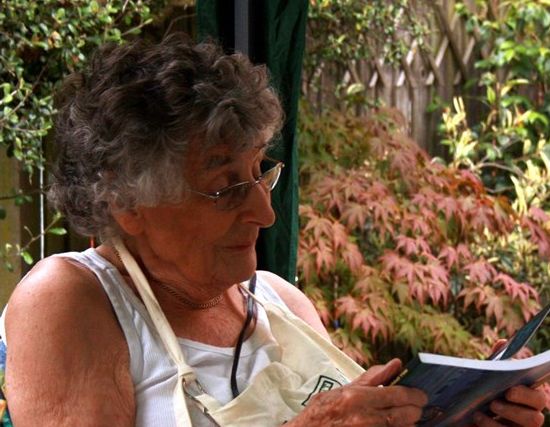
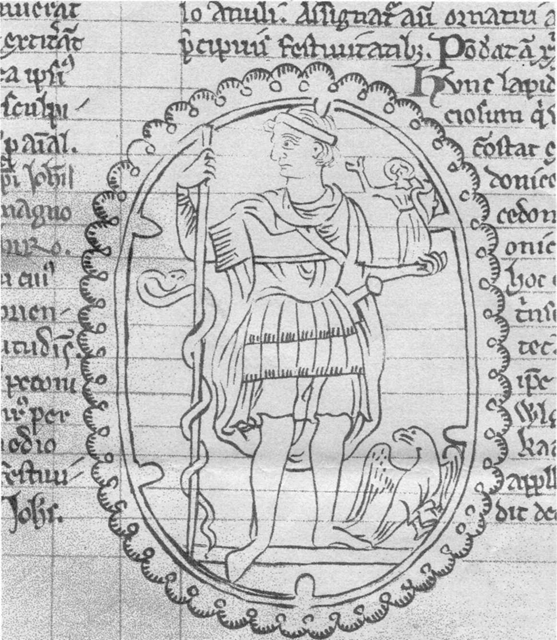
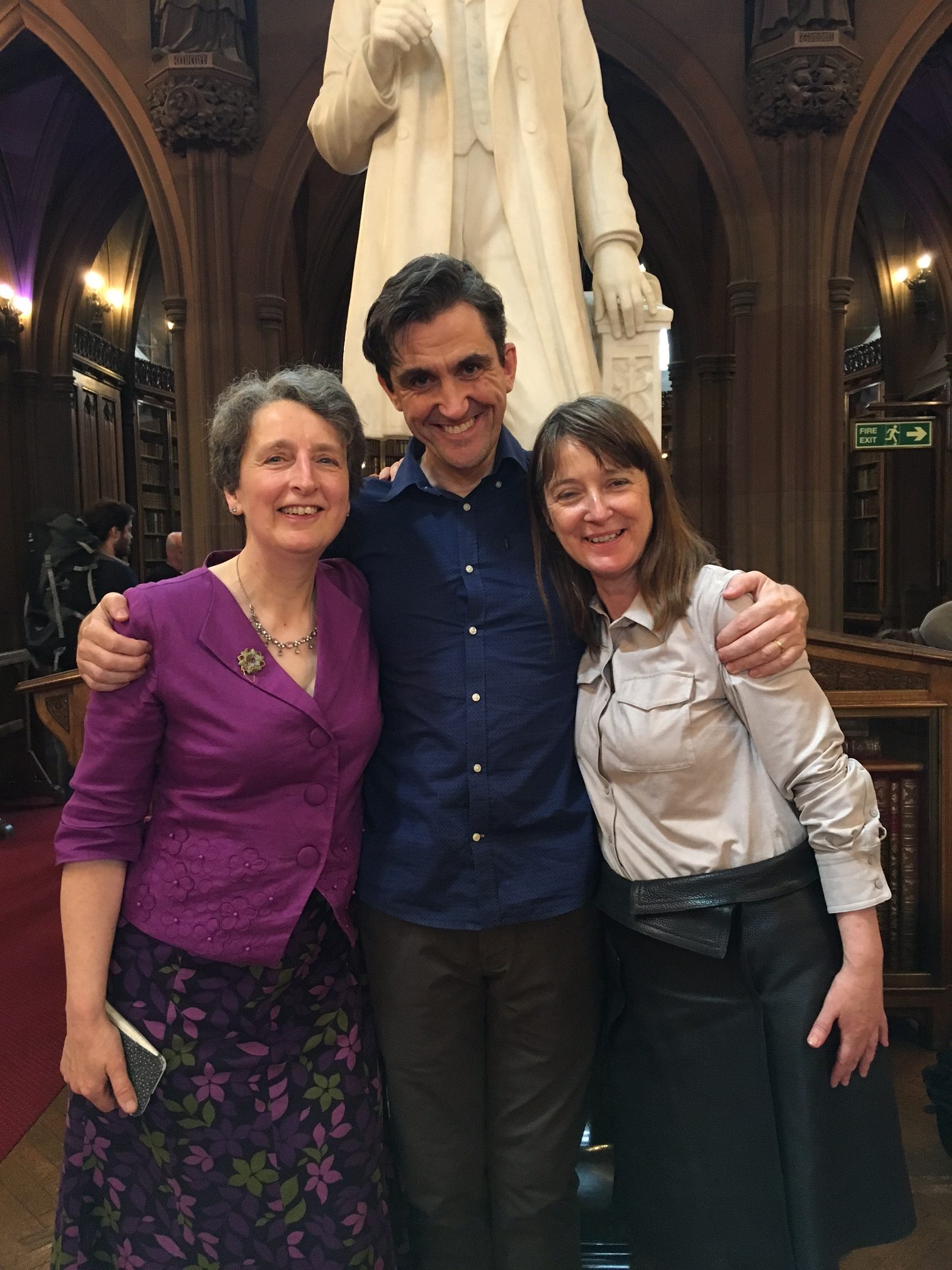
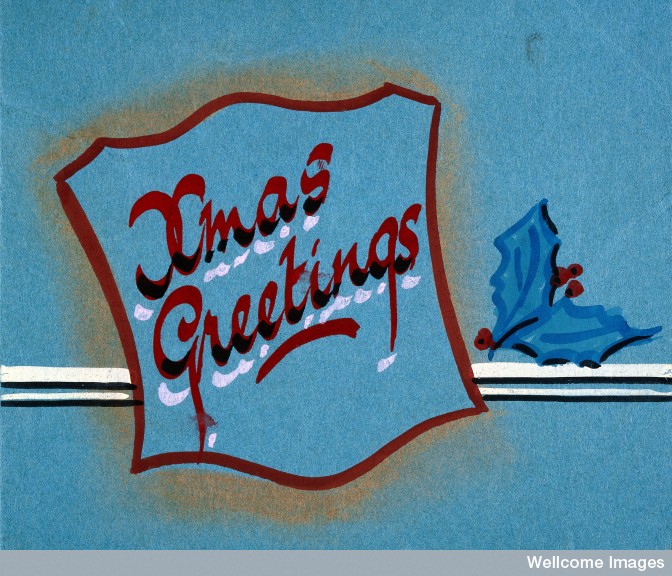
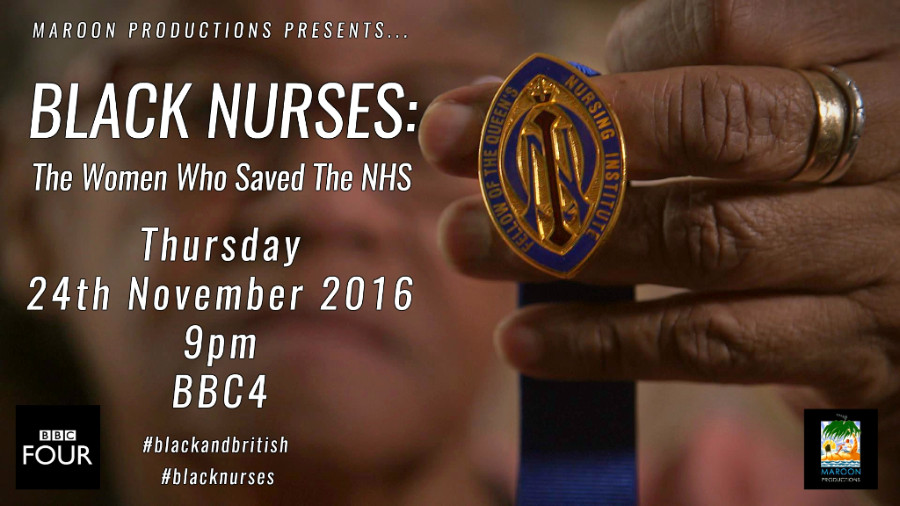
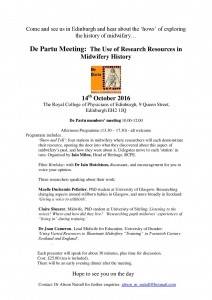
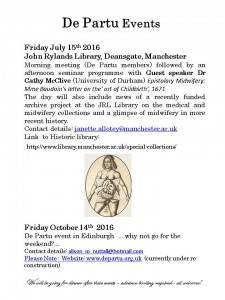
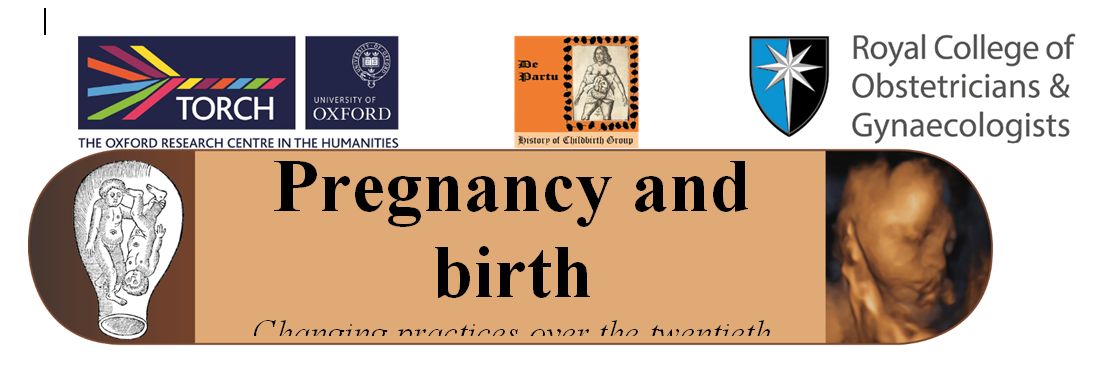 Changing practices over the twentieth century
Changing practices over the twentieth century